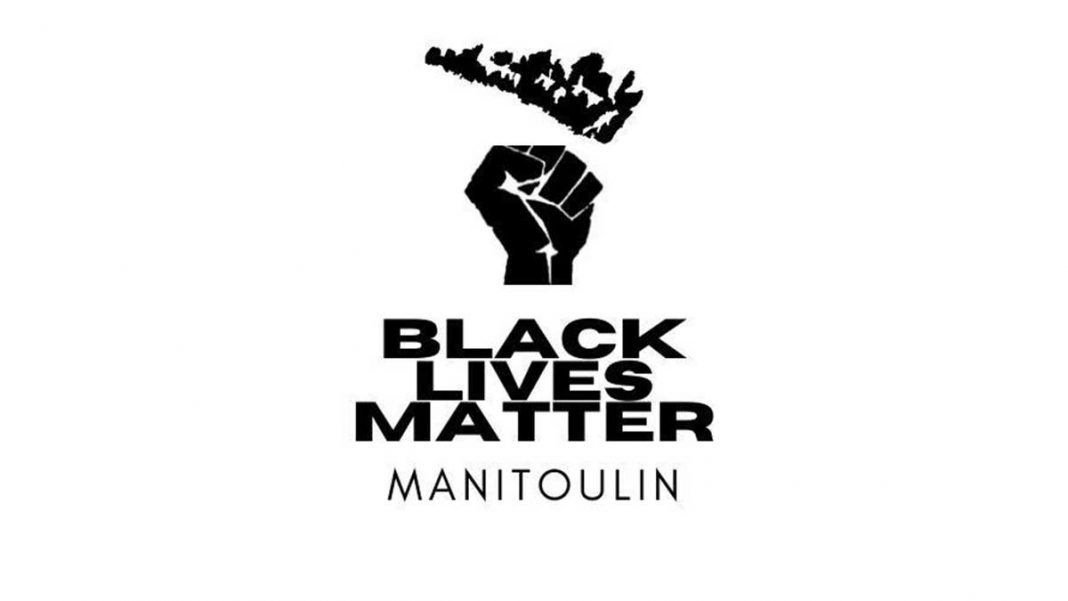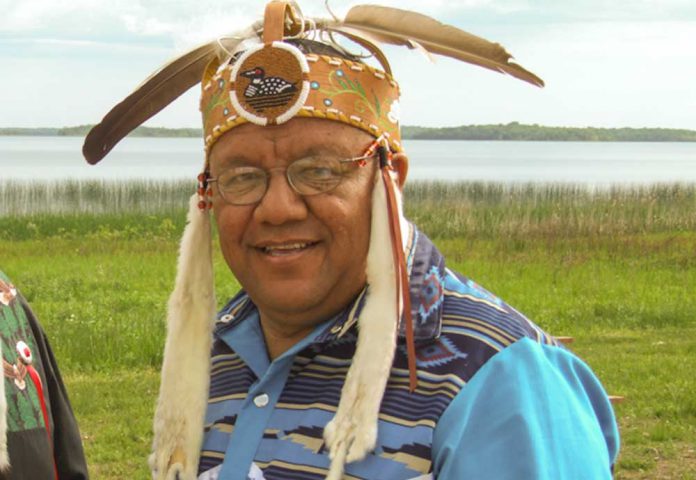LITTLE CURRENT – The protests against police brutality and anti-Black racism that erupted following the death of Minneapolis resident George Floyd in police custody in May have spread northward to culminate in an anti-racism protest in Kagawong this past Sunday and a Black Lives Matter (BLM) gathering in Little Current this Friday, June 19.
“This was definitely something all four of us are passionate about. We were all a bit worried about the backlash we might receive if we created this event, but we realized that the movement and what we want to support is bigger than any retribution we might face,” said Julie Casson, one of five young Island women who have joined forces to organize the solidarity event.
Alicia Williamson, Eden Beaudin, Jill Dickson, Ayriell Nodecker and Ms. Casson decided that the growing discussions around centuries of discrimination and harmful government policies toward Black individuals, Indigenous peoples and people of colour (POC) should be reflected on Manitoulin Island.
“We were talking about potentially going to Sudbury or Espanola to join other solidarity marches, but in our community there’s not a lot of visibility of solidarity, like a lot of small communities,” said Ms. Williamson.
This Friday’s event will be a peaceful protest to stand in support of ending discrimination and providing equal opportunities for all people. Espanola held a BLM march on June 5 which inspired some of the organizers to bring such a movement even closer to home. June 19 also corresponds with ‘Juneteenth,’ the date that marks the freeing of the last Black slave in the US Confederacy.
The gathering begins at 3 pm at the Manitoulin Welcome Centre next to the swing bridge in Little Current. At 6 pm those in attendance will march toward downtown on Water Street and loop back up to Meredith Street to return to the welcome centre.
The protest was not met with universal support from online commenters. One popular sentiment in many similar protests, including this event, is that “all lives matter” should be the theme of the day, rather than Black Lives Matter.
“Black Lives Matter,” however, does not imply that ‘only’ Black lives matter; rather, it acknowledges that marginalized people face systemic disadvantages, having lived through centuries of oppressive policies.
Enslaved Black people were largely treated as property rather than humans and did not enjoy the same rights as White citizens. Segregation laws following the end of slavery have created neighbourhoods into which marginalized people have been pushed, neighbourhoods that often have the same demographics today despite no formal segregation laws being in place.
Studies have shown that school districts in the United States with predominantly BIPOC (Black, Indigenous, people of colour) student populations receive much less funding than those in mainly White districts, among other reported systemic disadvantages.
Another sentiment against BLM protests is that the harsh anti-Black racism in the United States does not exist in Canada. Ontario Premier Doug Ford announced publicly in early June that Canada does not have systemic racism.
“Thank God we’re different than the United States and we don’t have the systemic, deep roots they’ve had for years,” the premier said at the time.
However, a look at the facts of history (that critics say are not properly explained in schools) brings up several examples of discriminatory policies in Canada. The legacy of the Indian Residential School system, for one, has caused intergenerational trauma for Indigenous peoples across Canada to the present day.
Anti-Black racism is also in Canadian history—slavery was not outlawed in Upper Canada until 1833 and institutions like St. Lawrence Market in downtown Toronto were once host to slave auctions.
Premier Ford retracted his comments the following day, acknowledging that systemic issues indeed exist in Canada.
Some have raised issues with protesters gathering in large numbers despite public health orders to stay home except for essential trips and to not gather in groups of more than 10 people.
“We’ve seen comments from people about their concerns with COVID-19 and gathering in groups, but racism is a public health issue for people of colour every single day of their lives,” said Ms. Williamson, referencing the chronic illnesses like diabetes and lung diseases that impact Indigenous and Black people at much higher rates than White individuals.
Everyone attending the protest is urged to wear a face mask, bring noisemakers to avoid cheering (which spreads droplets from the mouth) and to maintain physical distancing. The organizers also urge for peace and respect from participants and the public alike.
Some of the organizers with Anishinaabe heritage said standing in solidarity with Black people is important considering their support of Indigenous issues in the past.
“I think a lot of Indigenous people can relate to experiences like (police violence and systemic disadvantages) as well. For people who think this is just a political event, they should check into and research about it because in a lot of people’s lives, this is their reality,” said Ms. Beaudin, adding that staying silent when statistics reveal systemic inequality is a political action in itself.
The planned march route is posted on the Facebook event page for ‘Black Lives Matter Manitoulin – Peaceful Protest.’





